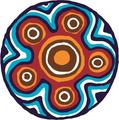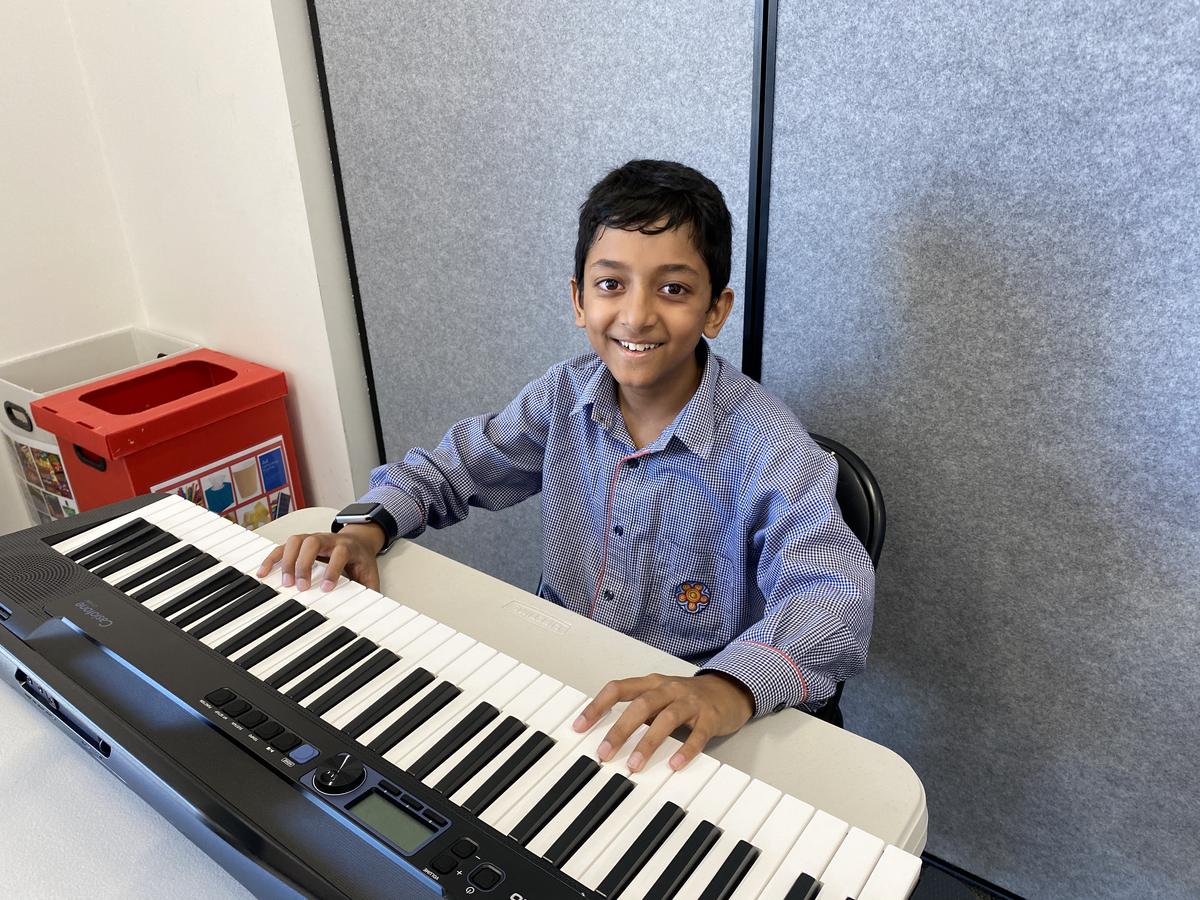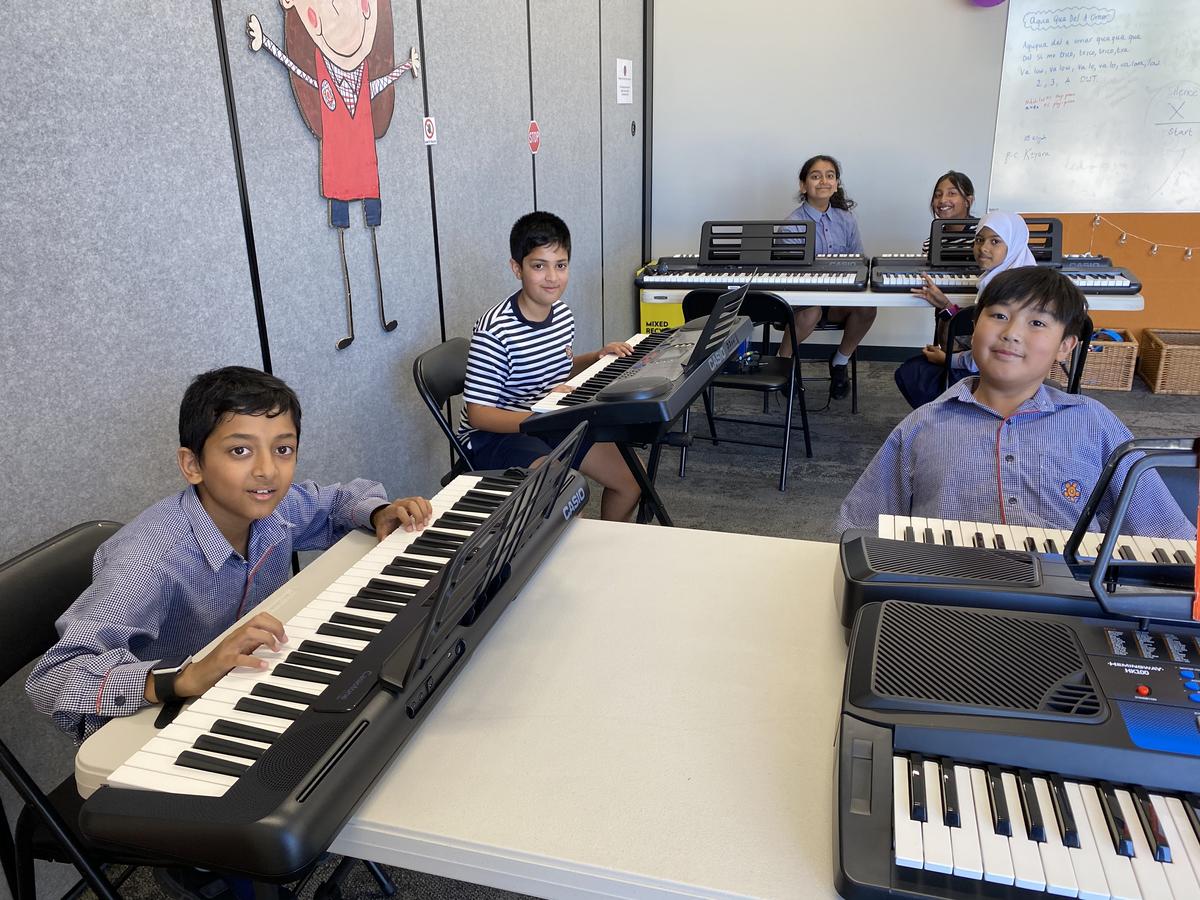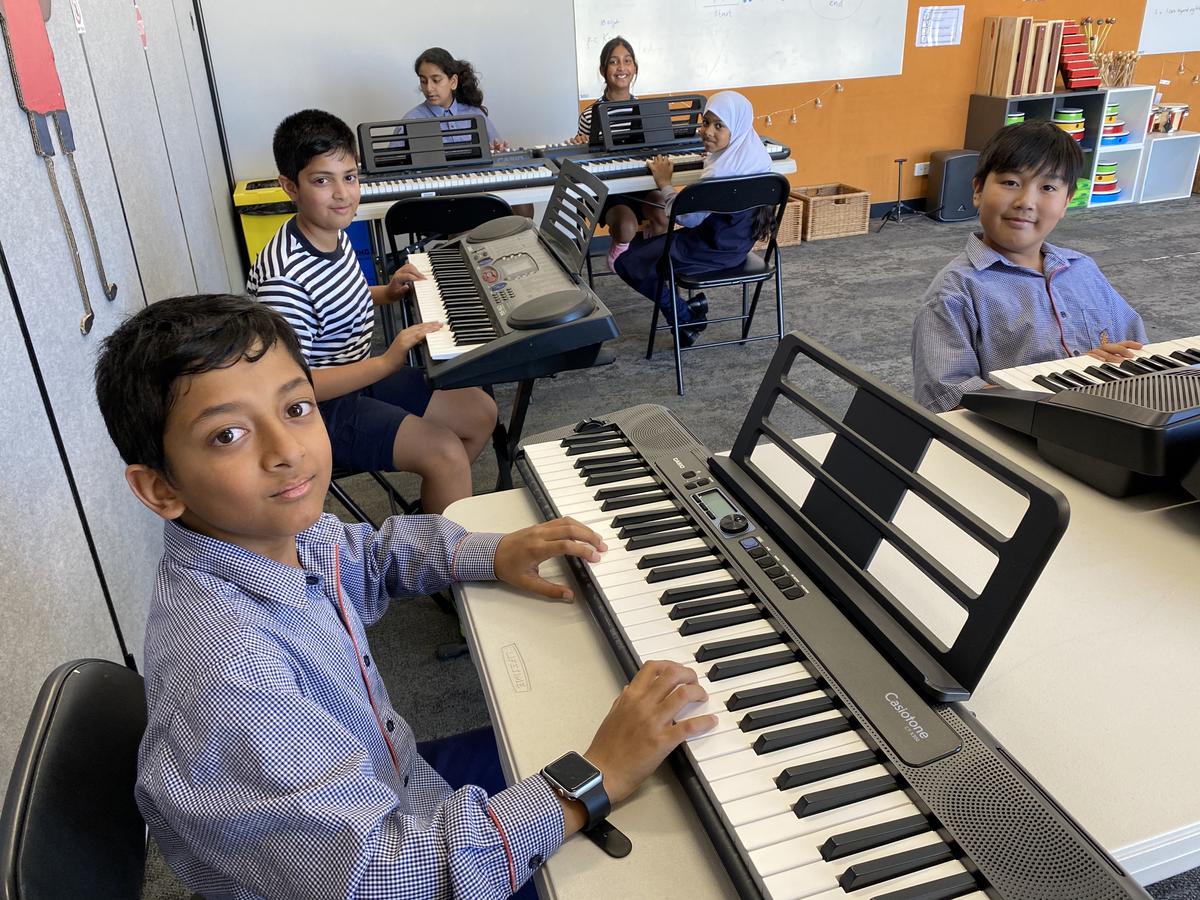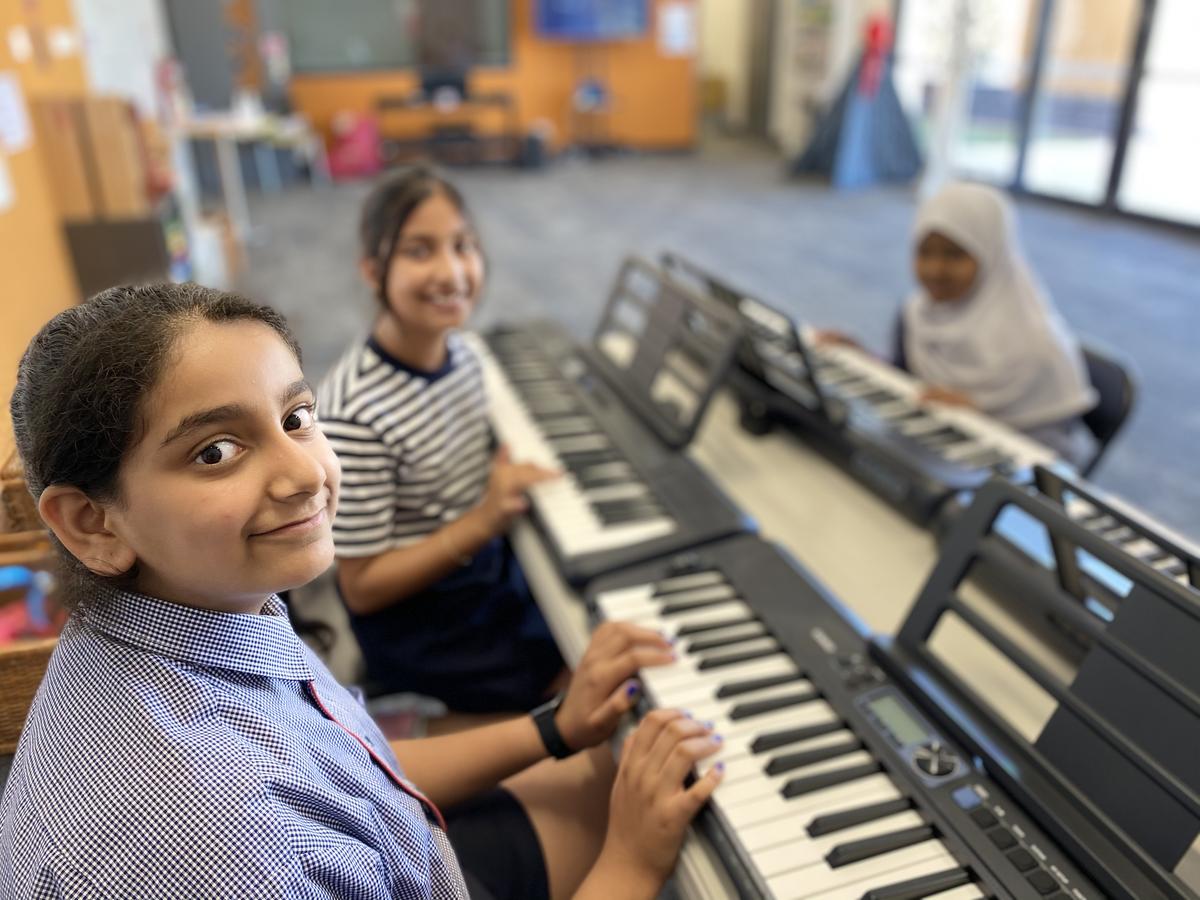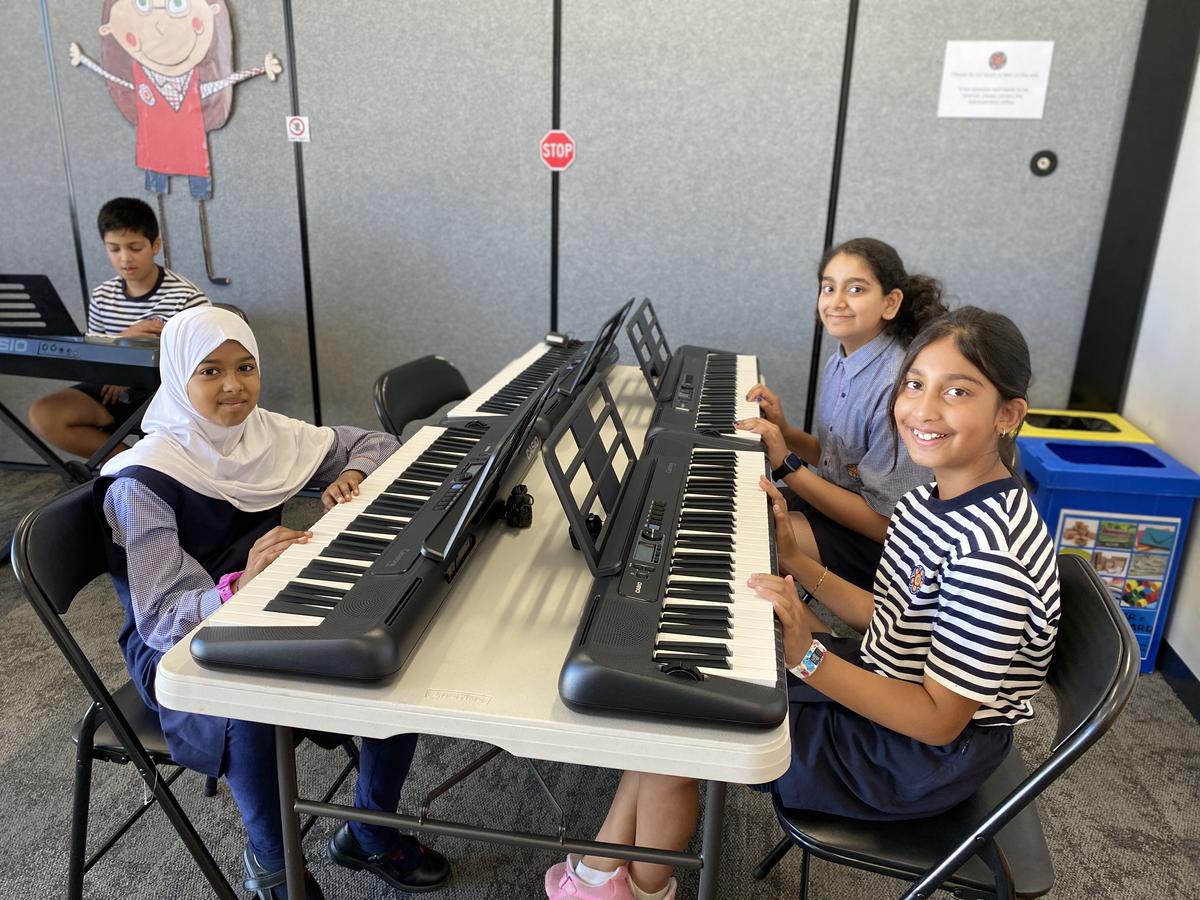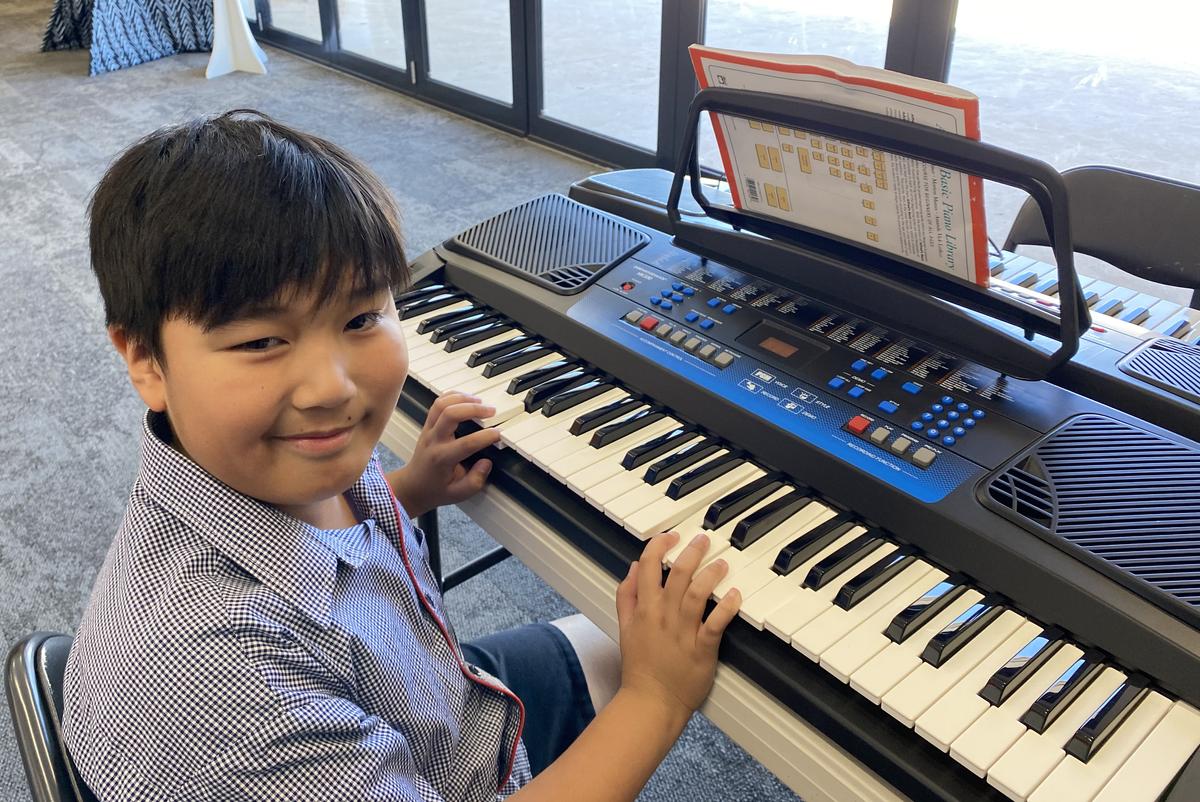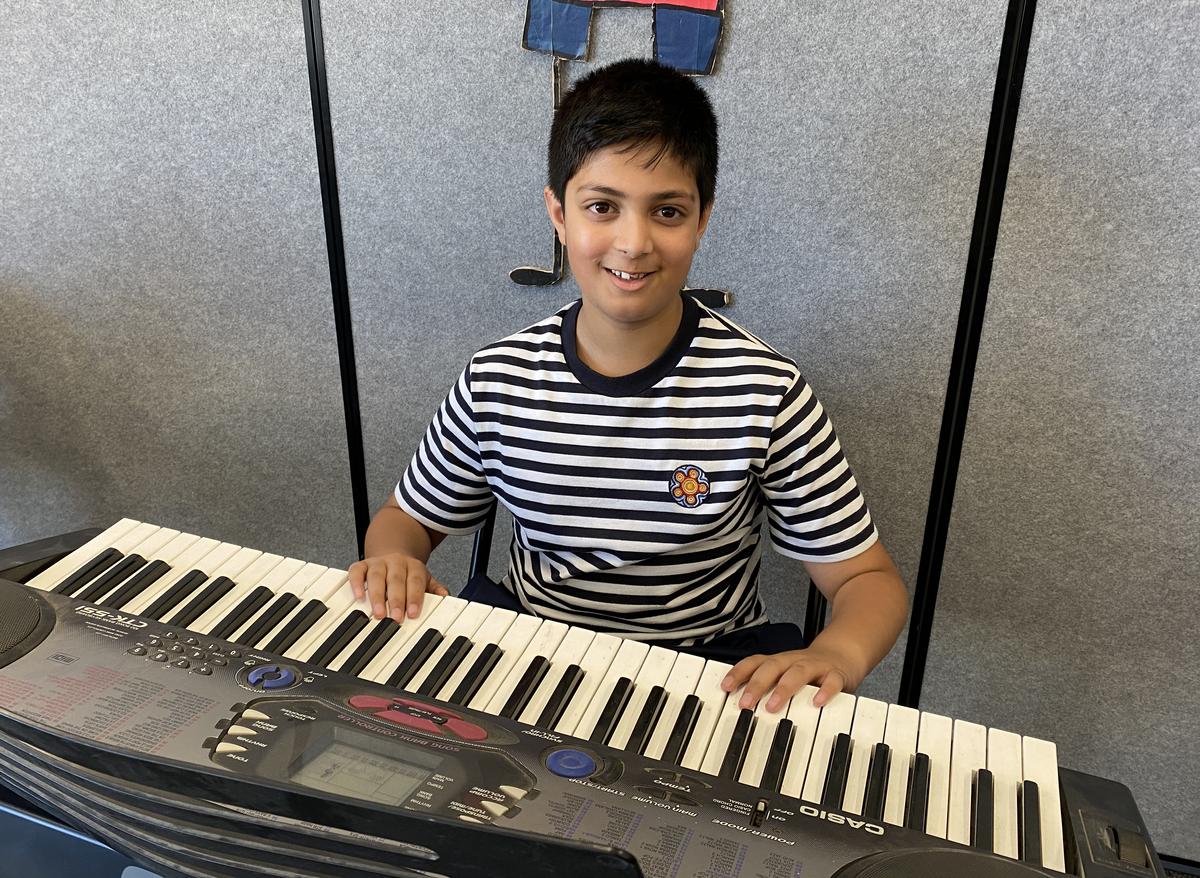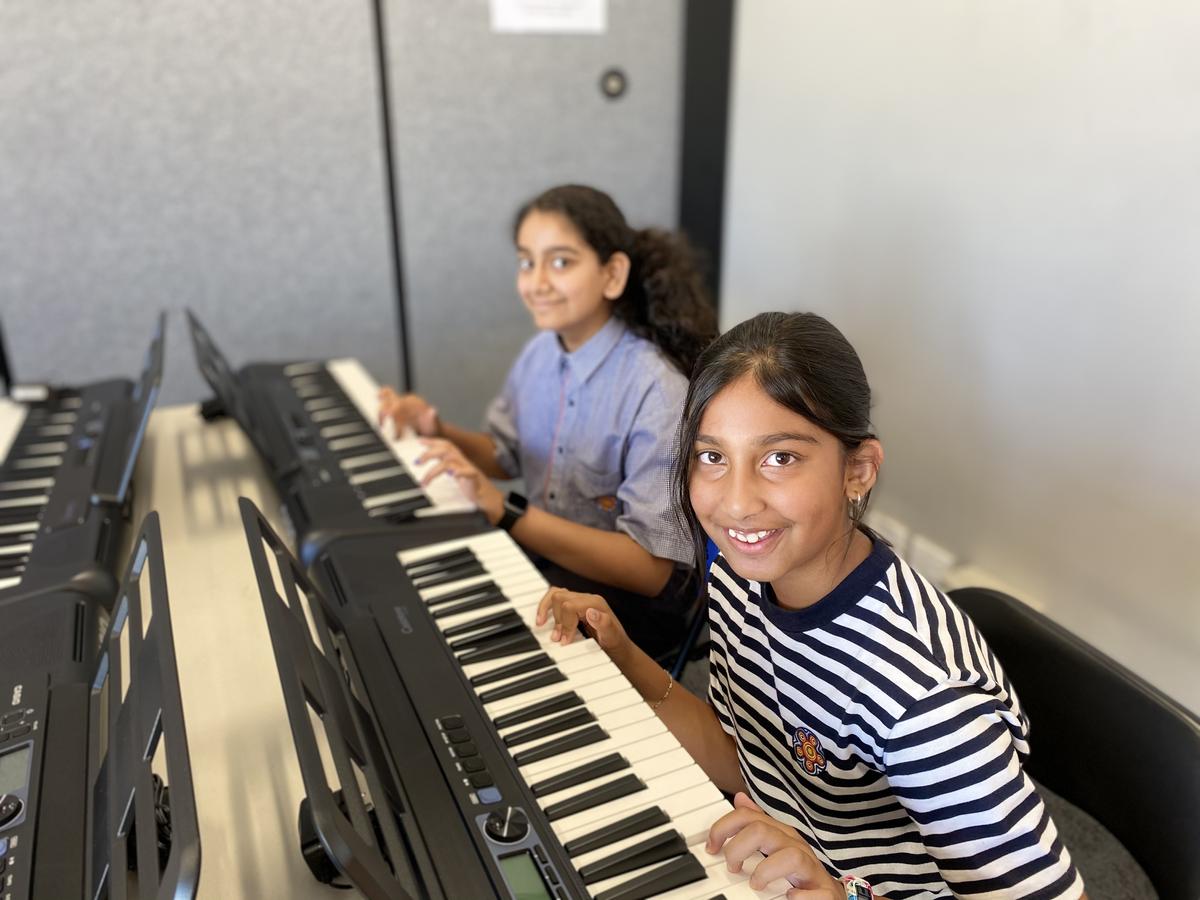News from the classrooms

Year 2 Term Overview
Dear Year 2 Families,
Welcome back to school for 2021. This year we have five Year 2 classes and the teachers are Anne in 2A, Mark in 2B, Sharnie in 2C, Crystal in 2D and Skye in 2E. Our students have settled into school routines very quickly and we are delighted.
Literacy
Reading is a major focus in Year 2. The aim of our reading program is to develop your child as a balanced reader - being able to decode (say) the words on the page, comprehend (understand) what they are reading and to read fluently with phrasing (reading smoothly using the punctuation). Students are really enjoying reading a variety of text types while exploring strategies such as predicting, visualising, questioning and summarising. They will participate in guided reading sessions, reading conferences, buddy reading and independent reading.
We are exploring how to write descriptions, recounts and narrative texts using the correct structure. Students will go through the whole writing process - collecting ideas, planning, drafting, revising, editing and publishing with each text type. We will also have a handwriting focus each week. The focus in grammar will be on using capital letters correctly, parts of speech (nouns, pronouns, verbs), adding affixes to base words and exploring a variety of spelling strategies.
Numeracy
This term, we are collecting, representing and interpreting data, and learning about time in the year (months, seasons) as well as how to interpret simple maps. Students will also learn how to tell time using an analogue clock. Lots of students have difficulty reading analogue clocks because we rely so heavily on digital clocks these days. Students need to be able to read o’clock times (by the end of prep), half past times (by the end of Year 1) and quarter past and quarter to (by the end of Year 2). We will also have a big focus on linking place value with financial maths and place value with length. In addition, our problem solving lessons will continue where students apply their maths knowledge and skills to solve real world problems.
Inquiry
We are currently working through a unit on the Personal and Social capability where we have been identifying personal strengths in ourselves and in others, ways to work effectively in groups, different ways of learning (multiple intelligences) and the importance of having a growth mindset. Later this term, we will work on a Civics and Citizenship unit, where we will look at different communities that we belong to (our grade, our School House, the Year 2 cohort, the DCC community) and how we can contribute to each of these communities.
Ways to Help Your Child At Home:
Home Reading - We have started our Home Reading program. The expectation is for your child to read their take home book 5 nights a week, answer some comprehension questions that an older family member asks them (see the Tips sheet in the Homework book) and record the title, date and a comment in the yellow reading journal themselves. Take home books are for enjoyment and for your child to practise their reading strategies, and are not meant to be a challenging task for your child. As such, students will be taking home books that are a level below their instructional reading level.
Learning Goals - Your child’s individualised learning goals are listed on Compass (starting at the end of Week 4). There is a reading goal, a maths goal, a writing goal and an Inquiry or SEL (social and emotional learning) goal for your child. Please read these and support your child by going through the suggested strategies to help at home. These goals are changed every three weeks, and you will also be informed of your child’s achievement of these goals.
Spelling - We will begin our SMART spelling program shortly. Your child will bring home a spelling list each week in their Homework book. They need to practise their 5 words by completing one task at home each night.
Year 2 Homework Matrix - You can find our Homework Matrix on Compass. There are lots of fun activities for your child to complete either independently or with a family member. In the past, the most popular activity for most Year 2 students has been the screen-free night for the entire family!
Time - read the time using an analogue clock at different times of the day (see note above about reading clocks)
Read for Pleasure - find some time to regularly read a book to or with your child for pleasure. Make it a quiet, cosy, happy fun time so that your child sees that reading is more than just having to ‘do a task’ - it’s FUN.
We look forward to working with you and your child this year. Please come and see your child’s teacher if you have any questions or concerns. After school is best for a quick chat, otherwise send your child’s teacher an email to set up an appointment time for a longer chat.
Mark, Skye, Crystal, Sharnie and Anne
Year 5 Term Overview
Dear Year 5 Families,
Welcome back to school for 2021. Our students have settled into school routines very quickly and we are delighted to have them back. Below you will find the curriculum outline of Term 1 for the subject areas of Reading, Writing, Maths and Inquiry.
Reading
In Reading this term your child in Year 5 will be understanding how texts vary in their purpose, structure and topic. The students will be learning how vocabulary and figurative language is used to convey different ideas and points of view. They will learn to navigate and read through different text types like imaginative, informative and persuasive texts by interpreting structural features, including tables of content, glossaries, chapters, headings, subheadings etc. The students will continue to develop and consolidate their comprehension strategies skills to analyse text features, language features and text content. Along with analysing the text they will describe its effect on the particular audience.
Writing
In Writing this term, students will focus on the text type – review, exposition, and discussion. They will work through the writing process (plan, draft, revise, edit and publish) and analyse the effects of different persuasive features, for example rhetorical questions and exaggeration, and how it influences the reader. Students will have a focus on key vocabulary and build their understanding of the meaning of some words depending on content and how they are being used. We will also have a clear focus on spelling.
Maths
In Mathematics this term your child in Year 5 will be working on a Place Value unit with a focus on fractions and decimals. Students will be understanding how the place value system can be extended to decimals and how to compare, order and represent decimals. They will learn how to connect decimals to fractions and how to order them on a number line. Students will be able to connect fractions to chance and represent the probability of an event in fractional form. Students will learn how to collect data and represent it on displays including: column graphs, dot plots and tables. Students will develop locational awareness by using a grid reference system to map locations. Along with comparing and converting between 12 and 24 hour time.
Inquiry
In Inquiry this term, we are currently working through a unit on the Personal and Social capability where we have been identifying personal strengths in ourselves and in others, ways to work effectively in groups, different ways to build respectful relationships and the importance of having a growth mindset. Later this term, we will work on a Geography unit, where we will look at different countries and cities around the world with a focus on comparison of economic, social and cultural characteristics.
Kind regards,
Bianca, Dom and Manprit
Grade 5 Teachers
Year 6 Term Overview
Dear Year 6 Families,
Welcome back to school for 2021. Our students have settled into school routines very quickly and we are delighted to have them back. Below you will find the curriculum outline of Term 1 for the subject areas of Reading, Writing, Maths and Inquiry.
Reading
In Reading this term your child in Year 6 will be understanding how texts vary in their purpose, structure, and topic. The students will be learning how vocabulary and figurative language is used to convey different ideas and points of view. They will learn to navigate and read through different text types like imaginative, informative, and persuasive texts by interpreting structural features, including tables of content, glossaries, chapters, headings, subheadings etc. The students will continue to develop and consolidate their comprehension strategies skills to analyse text features, language features and text content. Along with analysing the text they will describe its effect on the audience.
Writing
In Writing this term, students will focus on the text type – review, exposition, and discussion. They will work through the writing process (plan, draft, revise, edit and publish) and analyse the effects of different persuasive features, for example rhetorical questions and exaggeration, and how it influences the reader. Students will have a focus on key vocabulary and build their understanding of the meaning of some words depending on content and how they are being used. We will also have a clear focus on spelling.
Maths
In Maths in Term 1, students will solve problems involving time, length and area, and make connections between capacity and volume. They will interpret a variety of everyday timetables and will recognise the properties of prime, composite, square and triangular numbers and determine sets of these numbers. Students will relate decimals to the metric system and choose appropriate units of measurement to perform a calculation. They will solve problems involving time, length and area, and make connections between capacity and volume. They will use the properties of angles and investigate simple combinations of transformations in the plane, with and without the use of digital technology. In fractions, students will calculate a simple fraction of a quantity and calculate common percentage discounts on sale items, with and without the use of digital technology. They will make connections between the powers of 10 and the multiplication and division of decimals and will add, subtract and multiply decimals and divide decimals where the result is rational.
Inquiry
In Inquiry this term, we are currently working through a unit on Personal and Social capability where we have been identifying what makes us unique and individuals. We have exploring emotions and how this effects our relationships with others and celebrating the diversity within the classroom. Later this term, we will work on a Geography unit, where we will look at identifying and describing locations in major countries of Europe, North America and Asia.
Kind Regards,
Ryan McAlpine
Grade 6 Teacher
Performing Arts
Our students have been busy learning how to play music on our keyboards this term.
